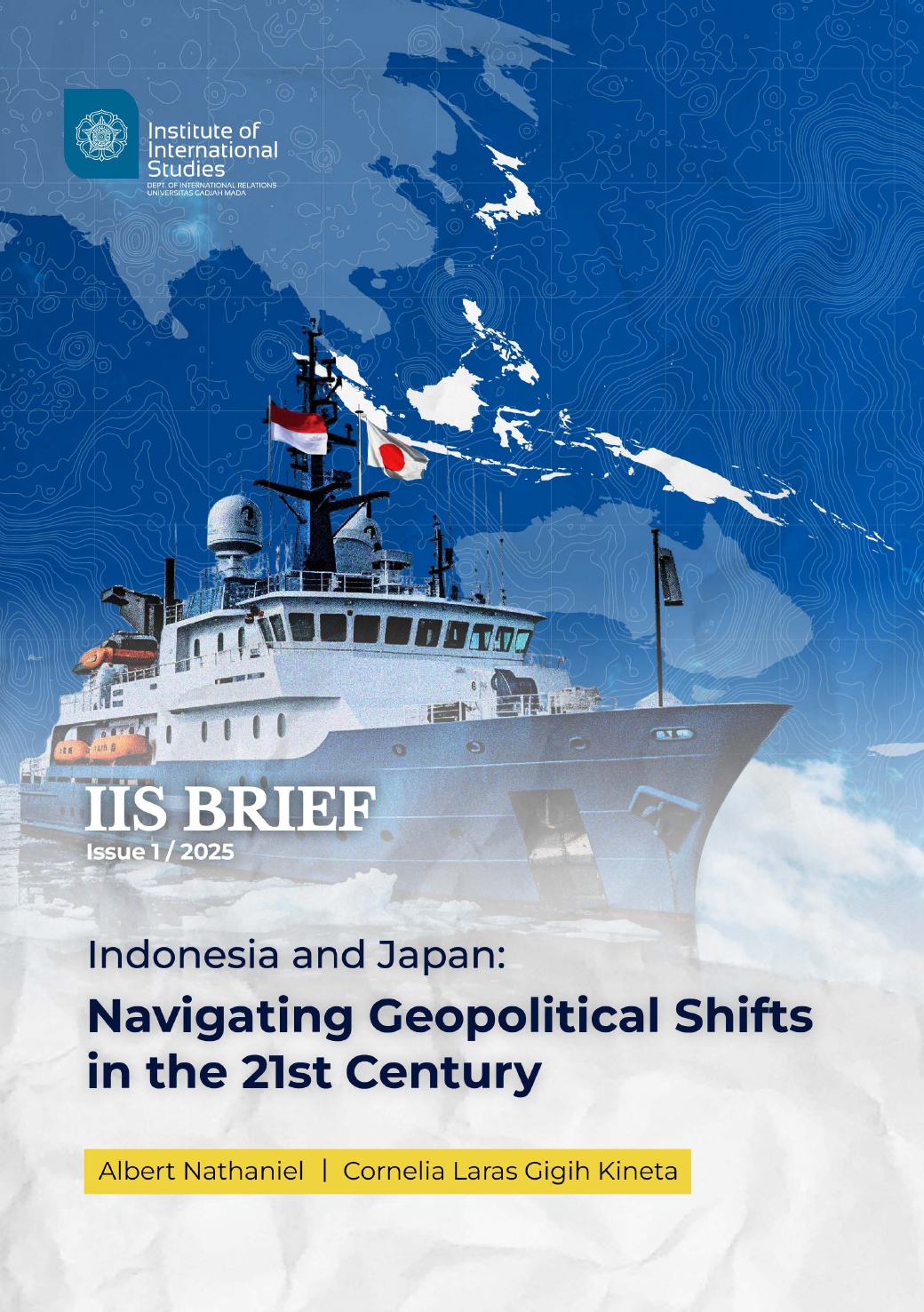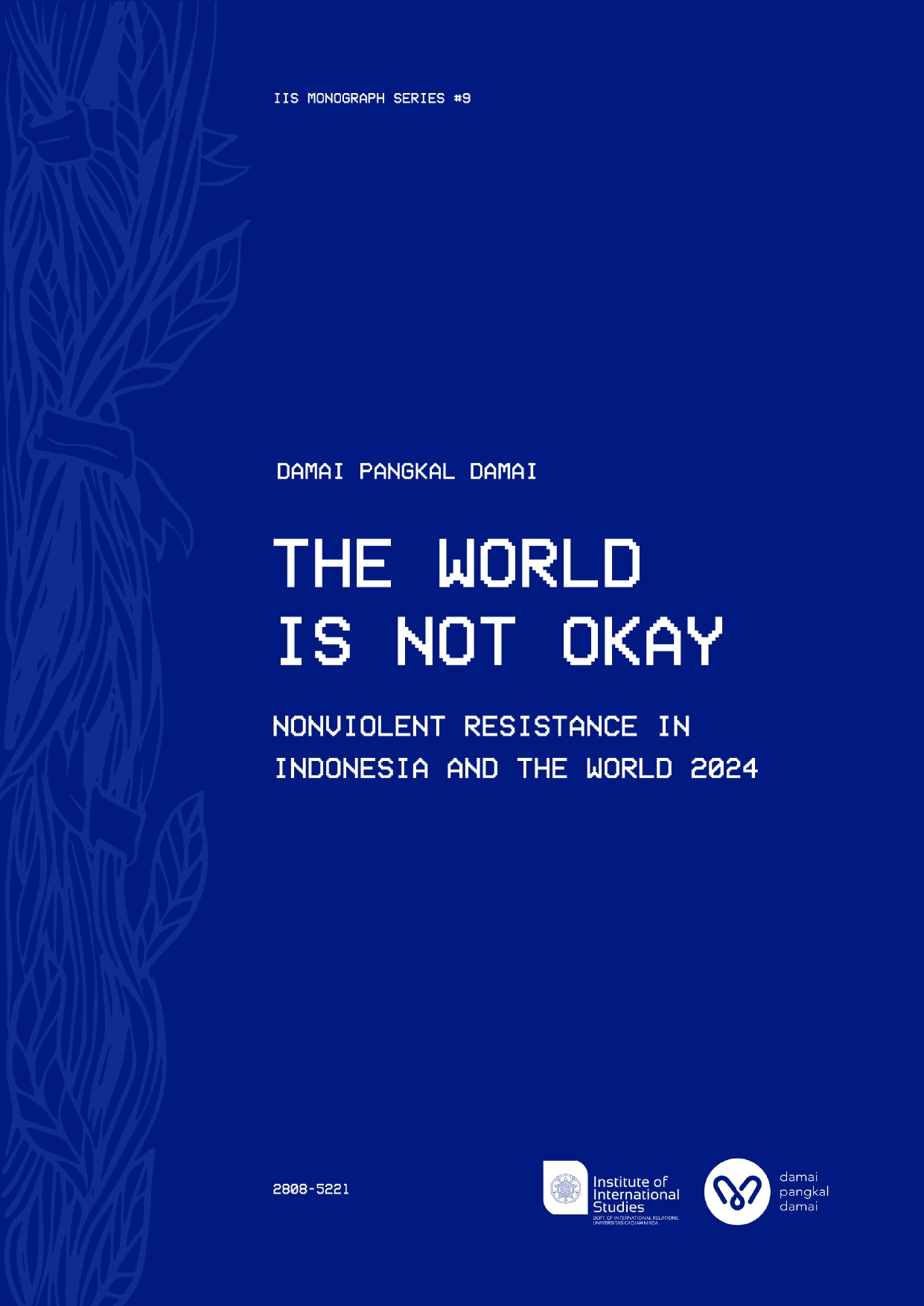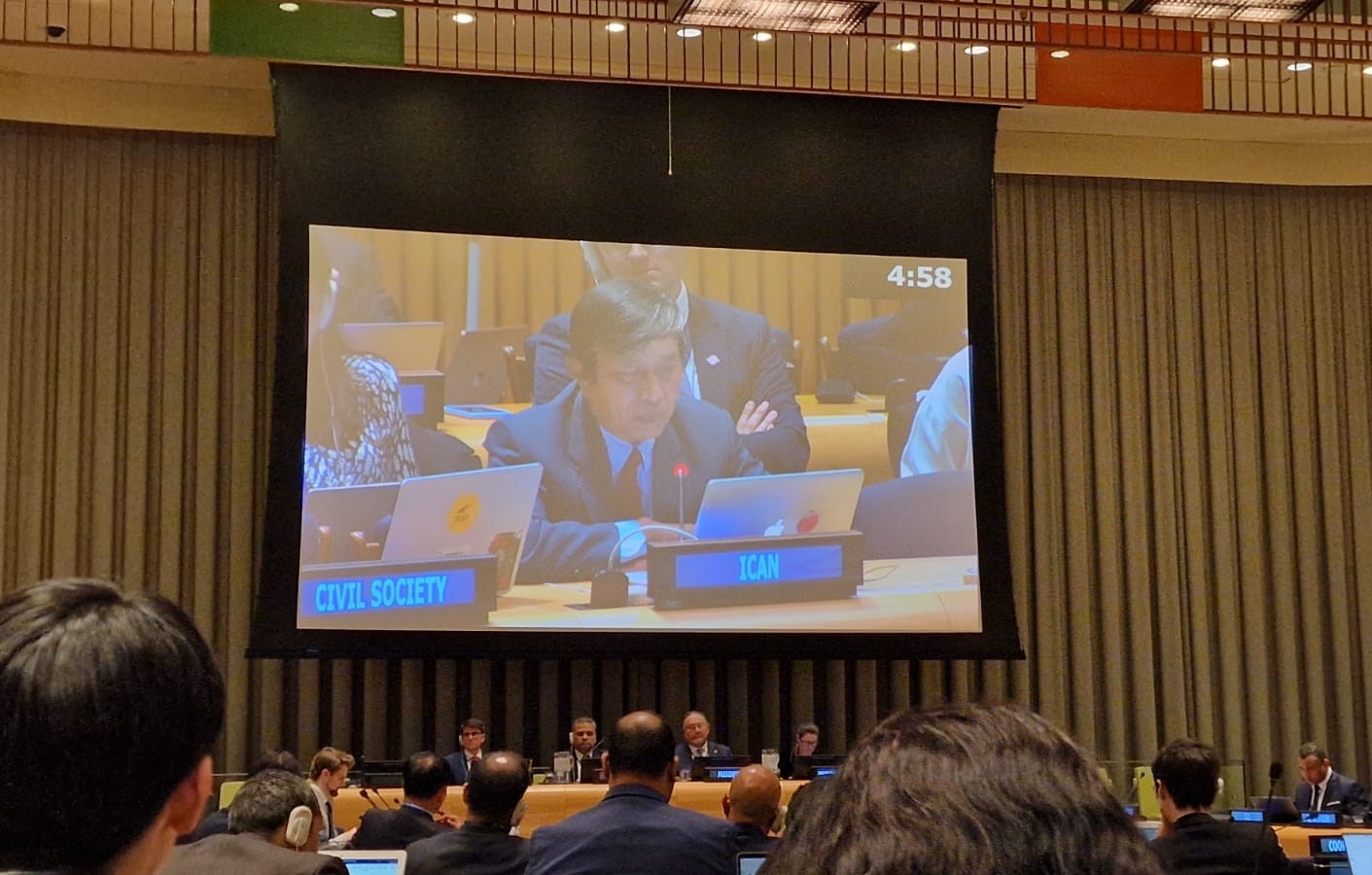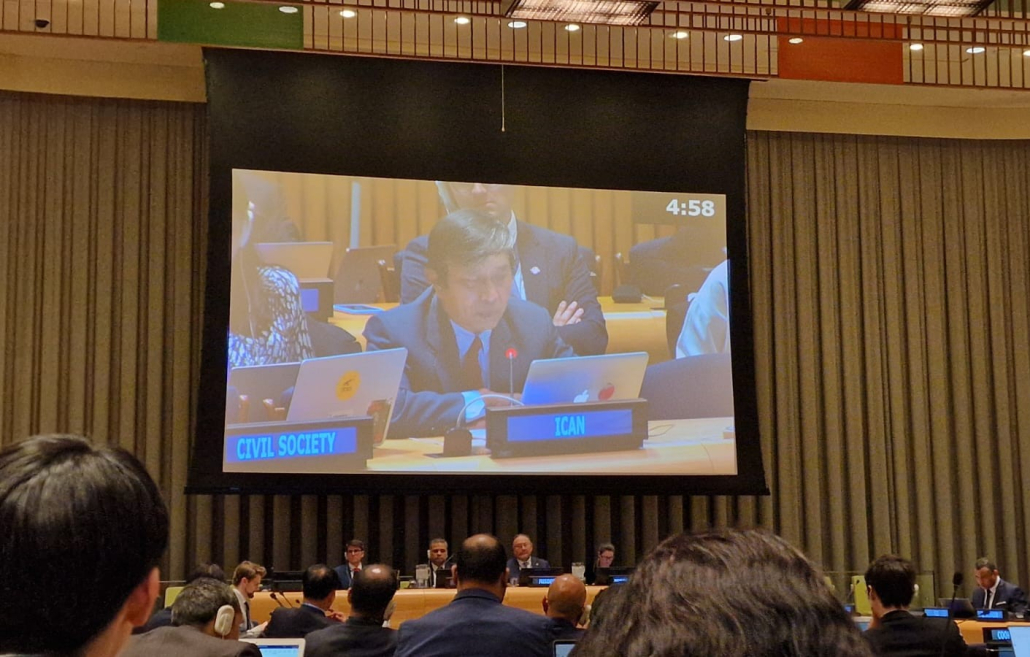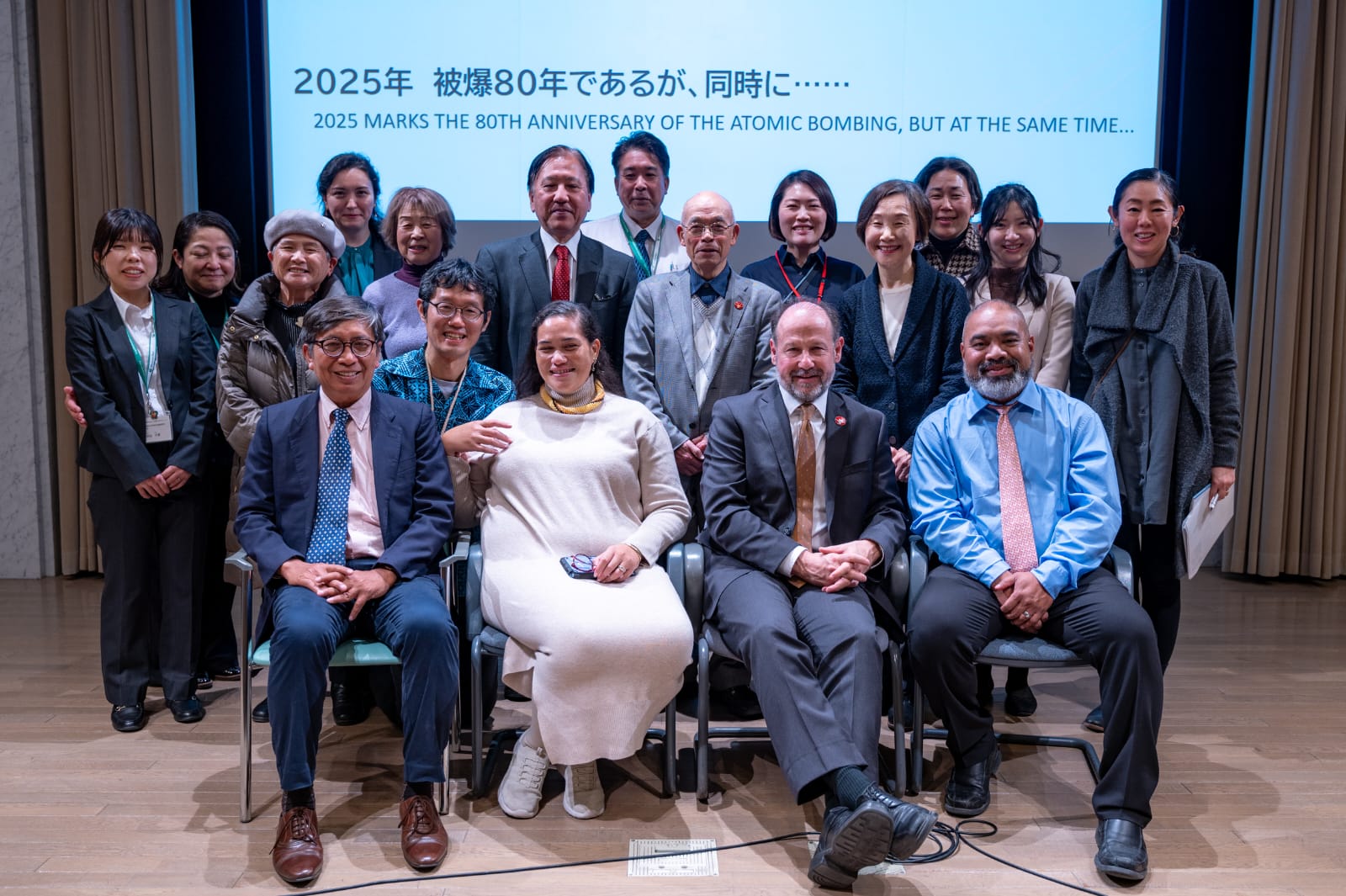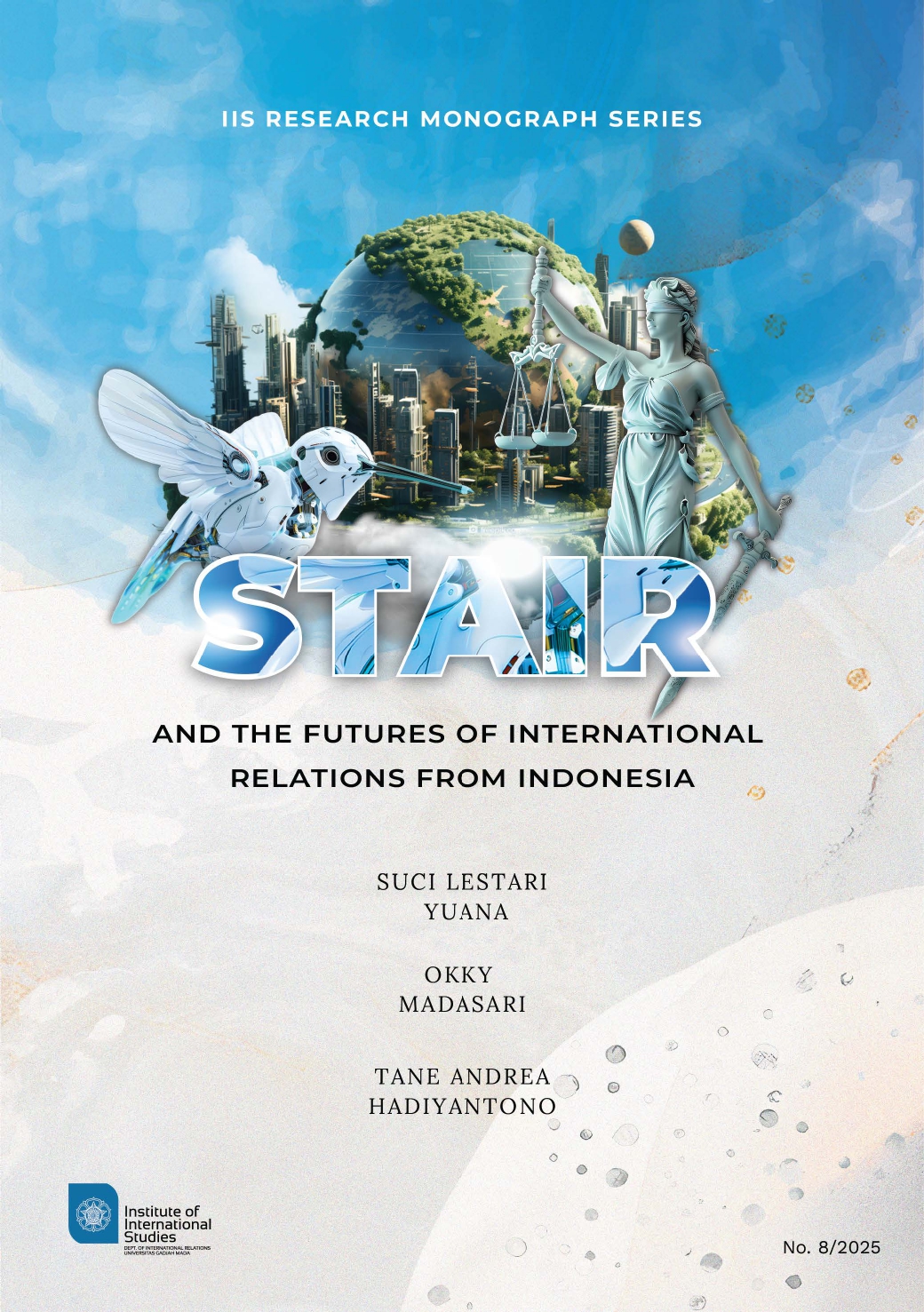Thursday, 22 May 2025 – As the digital economy spreads rapidly across Southeast Asia, a powerful new shadow report—led by platform workers and their allies—calls out the growing injustices faced by ride-hailing and delivery drivers in the region.
News (English)
[googlepdf url=”https://iis.fisipol.ugm.ac.id/wp-content/uploads/sites/720/2025/03/IIS-Brief-Issue-1-2025.pdf” download=”Download” width=”100%” height=”600″]
The relationship between Indonesia and Japan has long been characterized by strong cultural and economic ties.
[googlepdf url=”https://iis.fisipol.ugm.ac.id/wp-content/uploads/sites/720/2025/03/dpd-Nonviolent-Resistance-Reflection-2024.pdf” download=”Download” width=”100%” height=”600″]
2024 was election year for more than half of the world’s population.
On 8-9 February 2025, Mr. Muhadi Sugiono, Senior Researcher and Lead Campaigner at the Institute of International Studies, Universitas Gadjah Mada, participated in the International Civil Society Forum to Abolish Nuclear Weapons, in Tokyo, Japan.
[googlepdf url=”https://iis.fisipol.ugm.ac.id/wp-content/uploads/sites/720/2025/02/Monograph-8-STAIR.pdf” download=”Download” width=”100%” height=”600″]
STAIR and the Futures of International Relations from Indonesia is more than a book—it’s a manifesto for reimagining global politics through the lens of the Global South!
From the birth of the STAIR Community in Indonesia to the urgency of decolonizing IR studies, this monograph challenges the traditional perspectives by incorporating critical approaches, such as phenomenology, the politics of technology, and aesthetics into international studies.
[googlepdf url=”https://iis.fisipol.ugm.ac.id/wp-content/uploads/sites/720/2024/09/FR-78-Layout-copy.pdf” download=”Download” width=”100%” height=”600″]
.[googlepdf url=”https://iis.fisipol.ugm.ac.id/wp-content/uploads/sites/720/2024/08/FR-77-Layout-copy.pdf” download=”Download” width=”100%” height=”600″]
.On July 9th – 11th, 2024, the Association for Asian Studies and Universitas Gadjah Mada organized the AAS-in-Asia Conference 2024 themed Global Asias: Latent Histories, Manifest Impacts in Yogyakarta, Indonesia.
Yogyakarta, 27 June 2024 — The Global Engagement Office (GEO) and the Faculty of Social and Political Sciences (FISIPOL), Universitas Gadjah Mada, in collaboration with the Institute of International Studies, Department of International Relations, Universitas Gadjah Mada (IIS UGM), hosted a discussion with the Asia New Zealand Foundation.

